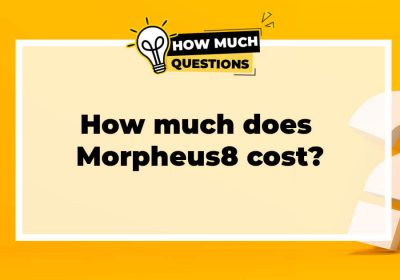
Horse Camp Cost: A Comprehensive Guide to Pricing and Options
Horse camps are a wonderful opportunity for equestrian enthusiasts of all ages to immerse themselves in a world of horses, learn new skills, and enjoy the thrill of riding. If you're considering attending a horse camp, one of the essential factors to consider is the cost. In this comprehensive guide, we will explore the various factors that influence horse camp costs, the different types of camps available, additional expenses to consider, and provide valuable tips for budgeting and saving money. So let's saddle up and delve into the world of horse camp pricing and options!
Factors Affecting Horse Camp Costs
Before we dive into specific pricing details, let's explore the key factors that influence the cost of horse camps. Understanding these factors will help you make an informed decision and choose the camp that best fits your budget and preferences.
Camp Duration and Packages
One significant factor that affects horse camp costs is the duration of the camp. Horse camps can range from short-term programs, lasting a few days, to long-term camps that extend over several weeks. Camps offering longer durations often provide more comprehensive instruction and a deeper immersion into the equestrian world. Additionally, some camps may offer different package options, such as day camps, overnight camps, or extended stays, which can affect the overall cost.
Amenities and Facilities
The amenities and facilities provided at a horse camp can vary greatly, and they can significantly impact the cost. Some camps offer luxurious accommodations, dining services, and a wide array of recreational activities, while others provide more modest facilities. The availability of amenities and the level of comfort you desire will influence the overall cost of the camp.
Location and Travel Expenses
The location of the horse camp plays a role in determining the cost. Camps located in areas with higher living costs or proximity to major cities may have higher fees. Additionally, you should consider travel expenses, including transportation costs and any necessary travel arrangements, when calculating the overall cost of attending a horse camp.
Level of Instruction and Training
The expertise and qualifications of the instructors, as well as the level of instruction and training offered, can impact the cost of horse camps. Camps with expert instructors, specialized training programs, and intensive riding lessons may have higher fees compared to camps that provide more basic instruction. Consider your skill level and training goals when selecting a camp to ensure you find the right balance between cost and quality of instruction.
Types of Horse Camps
Horse camps cater to various equestrian disciplines and offer specialized programs to suit different interests. Let's explore some of the common types of horse camps and their associated costs.
English Riding Camps
English riding camps focus on disciplines such as jumping, dressage, and equitation. These camps offer specialized instruction in English riding techniques and provide a great opportunity for riders interested in refining their skills. The pricing for English riding camps can vary depending on the duration, amenities, and level of instruction offered.
Western Riding Camps
For those with a passion for Western riding, Western riding camps provide an excellent platform to learn and practice disciplines like trail riding, roping, and reining. Similar to English riding camps, the cost of Western riding camps depends on factors such as camp duration, facilities, and the expertise of the instructors.
Specialized Discipline Camps
Specialized discipline camps cater to riders interested in specific equestrian disciplines such as show jumping, barrel racing, eventing, or other specialized areas. These camps often offer advanced training programs and focus on honing skills in a particular discipline. The cost of specialized discipline camps may be higher due to the expertise required and the intensity of training provided.
General Horsemanship Camps
General horsemanship camps are designed
for beginners or riders looking to build a solid foundation of riding skills and horse care knowledge. These camps provide a comprehensive introduction to horseback riding and cover topics like basic riding skills, horse care, grooming, and stable management. General horsemanship camps typically have lower pricing compared to specialized camps.
Additional Costs and Considerations
In addition to the camp fees, there are several other expenses and considerations to keep in mind when budgeting for a horse camp. Let's explore some of these additional costs:
Equipment and Gear
Attending a horse camp may require specific equipment and gear, such as horse tack, riding apparel, and safety gear. Depending on the camp, you may need to bring your equipment or have the option to rent it. Factor in the cost of purchasing or renting the necessary equipment when considering the overall cost of attending a horse camp.
Insurance and Liability
While many horse camps have insurance coverage, it's essential to understand the extent of the coverage and any liability implications. It's advisable to have your own insurance coverage, such as camper insurance or liability protection, to ensure you are adequately protected during your time at the camp. Be sure to inquire about insurance options and associated costs when researching horse camps.
Registration and Administrative Fees
Most horse camps require campers to pay registration fees and adhere to specific administrative policies. These fees may include a deposit to secure your spot, cancellation policies, and refund options. It's crucial to understand the registration requirements and associated fees before committing to a horse camp to avoid any unexpected costs or complications.
Tips for Budgeting and Saving on Horse Camp Costs
Attending a horse camp can be a significant investment, but with careful planning and consideration, you can manage your expenses effectively. Here are some valuable tips for budgeting and saving money on horse camp costs:
- Research Early: Start researching horse camps well in advance to take advantage of early bird discounts or special promotions.
- Consider Financial Assistance: Some horse camps offer scholarships or financial assistance programs. Explore these options to reduce the overall cost of attending a camp.
- Share Accommodations: If attending with friends or family members, consider sharing accommodations to split the cost and make it more affordable.
- Pack Smart: Bring essential items from home to avoid unnecessary expenses on gear or equipment rentals.
- Plan Meals and Snacks: If the camp allows it, consider packing your meals and snacks instead of relying solely on dining services provided by the camp. This can help save money on food expenses.
- Explore Local Options: Look for horse camps in your local area to minimize travel expenses and potentially find more affordable options.
Conclusion
Horse camps provide a fantastic opportunity to immerse yourself in the world of horses, learn new skills, and enjoy unforgettable experiences. The cost of horse camps can vary significantly depending on factors such as camp duration, amenities, location, and level of instruction. By understanding these factors and considering additional expenses, you can effectively budget for your horse camp experience. Remember to research early, explore financial assistance options, and plan your expenses wisely. Horse camps offer invaluable experiences that can enhance your equestrian journey, so saddle up, explore the options, and embark on a remarkable equestrian adventure!
Disclaimer: The information provided in this article is for informational purposes only and should not be considered as legal, financial, or professional advice. Horse camp prices, policies, and offerings may vary, and it's essential to consult with professionals and the specific horse camp organizers for accurate and up-to-date information.
Frequently Asked Questions (FAQ)
How much does horse camp cost?
Horse camp costs can vary depending on several factors such as the duration of the camp, amenities provided, location, and level of instruction. On average, horse camp costs can range from $500 to $2,000 per week. It's important to research different camps and their pricing options to find the one that best fits your budget and preferences.
Are there any discounts or financial aid options available for horse camps?
Yes, some horse camps may offer discounts or financial aid options. It's worth checking with the camp organizers to see if they provide any early bird discounts, sibling discounts, or scholarships based on financial need or merit. Additionally, local equestrian organizations or charities might have programs that offer financial assistance for horse camp participation.
What equipment do I need to bring to horse camp?
Typically, horse camps require participants to bring their own riding helmet, appropriate footwear (such as riding boots or sturdy closed-toe shoes), and comfortable riding attire. Some camps may also recommend bringing personal grooming tools and riding gloves. It's advisable to check the specific equipment requirements with the camp organizers beforehand to ensure you have everything you need.
Is insurance included in the camp fees?
Insurance coverage can vary between horse camps. While some camps may include basic insurance coverage for participants, it's important to verify this with the camp organizers. If insurance is not provided, it is recommended to consider obtaining personal accident insurance or checking if your existing health insurance policy covers any potential injuries or accidents that may occur during horse camp activities.
How can I save money on horse camp expenses?
To save money on horse camp expenses, consider the following tips:
- Look for early bird discounts or promotional offers from camps.
- Explore financial aid options or scholarships that may be available.
- Opt for shorter camp durations or consider day camps instead of overnight camps.
- Share accommodation with other campers to split costs.
- Pack your own snacks and drinks instead of relying on camp-provided meals.
- Bring your own equipment and grooming supplies if permitted.
- Consider attending local camps to save on travel and transportation costs.
Are there any specific registration requirements for horse camps?
Yes, horse camps typically have registration requirements that may include filling out a registration form, providing medical information and emergency contacts, signing liability waivers, and paying a registration fee or deposit. It's important to carefully review and fulfill all the registration requirements and deadlines specified by the camp organizers to secure your spot and ensure a smooth registration process.
Note: The information provided here is for general guidance and may vary depending on the specific horse camp you choose. It is advisable to consult with the camp organizers directly for accurate and up-to-date information regarding costs, discounts, equipment requirements, insurance, registration, and any other camp-related inquiries.
If you want to know other articles similar to Horse Camp Cost: A Comprehensive Guide to Pricing and Options you can visit the category Personal Care and Beauty Costs.
- Factors Affecting Horse Camp Costs
- Types of Horse Camps
- Additional Costs and Considerations
- Tips for Budgeting and Saving on Horse Camp Costs
- Conclusion
- Frequently Asked Questions (FAQ)
- How much does horse camp cost?
- Are there any discounts or financial aid options available for horse camps?
- What equipment do I need to bring to horse camp?
- Is insurance included in the camp fees?
- How can I save money on horse camp expenses?
- Are there any specific registration requirements for horse camps?
Leave a Reply

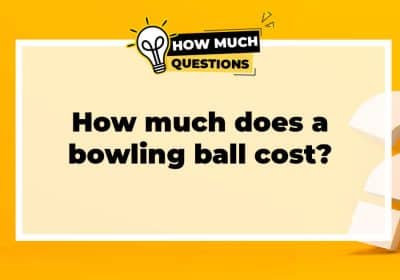
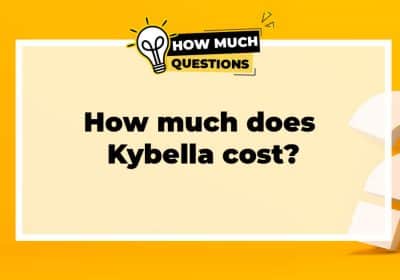
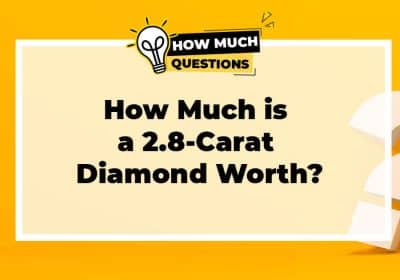
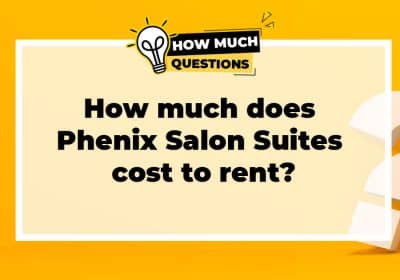
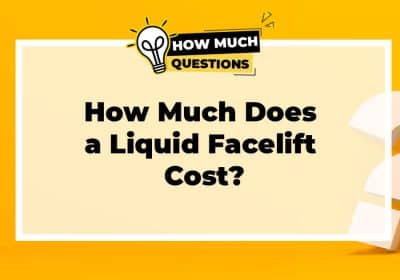

You might be interested in